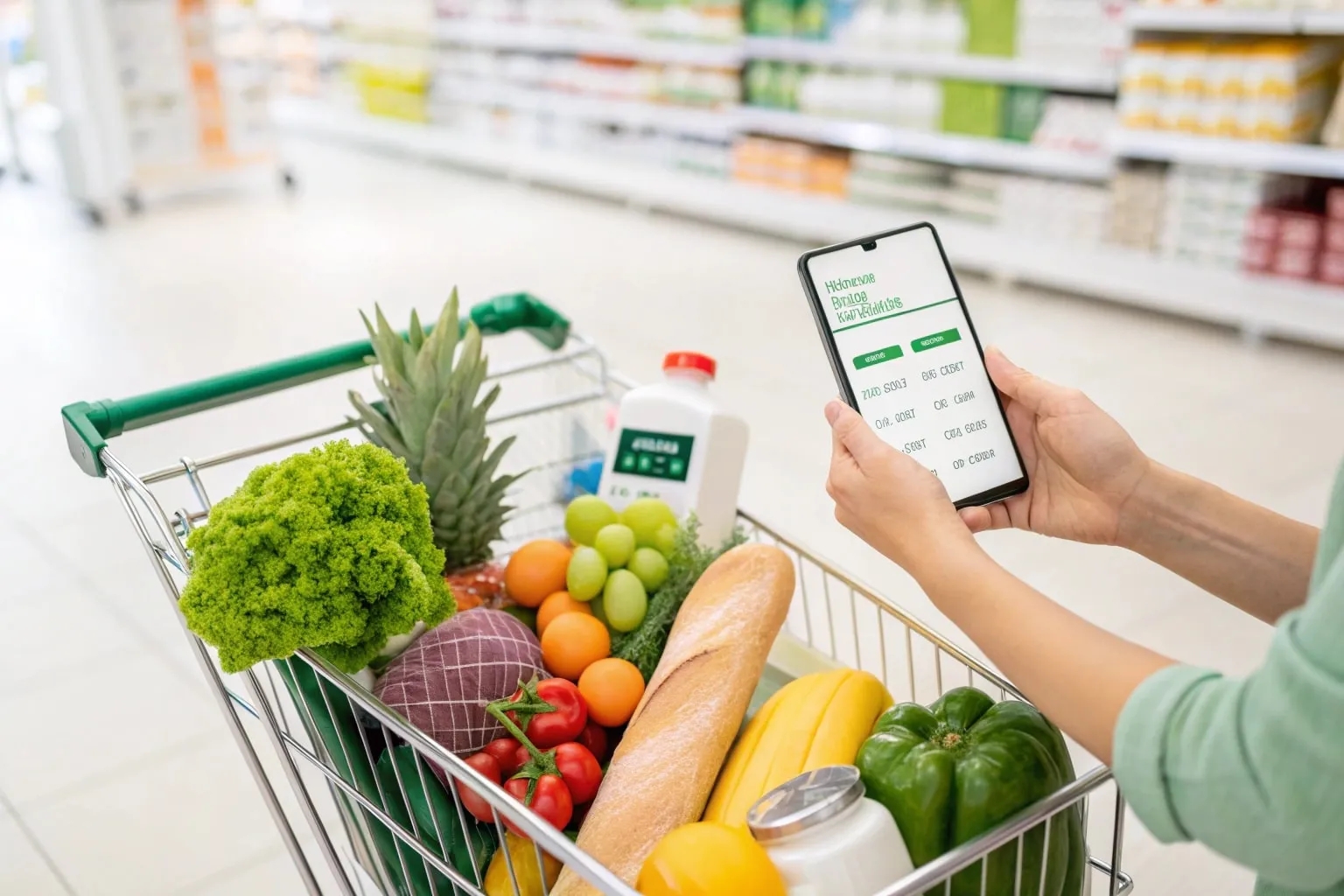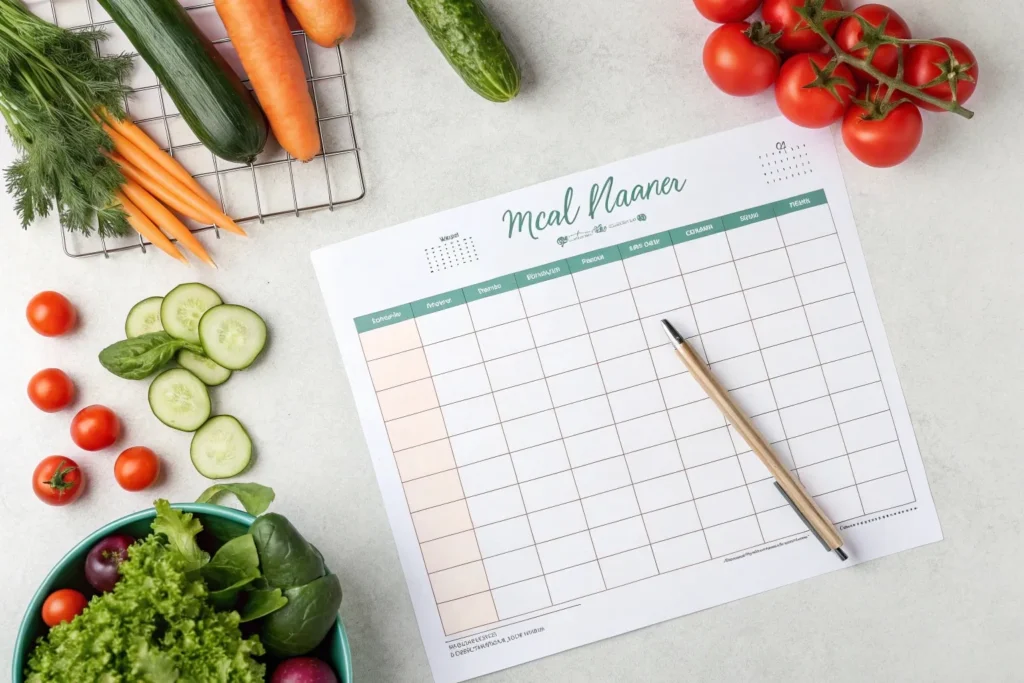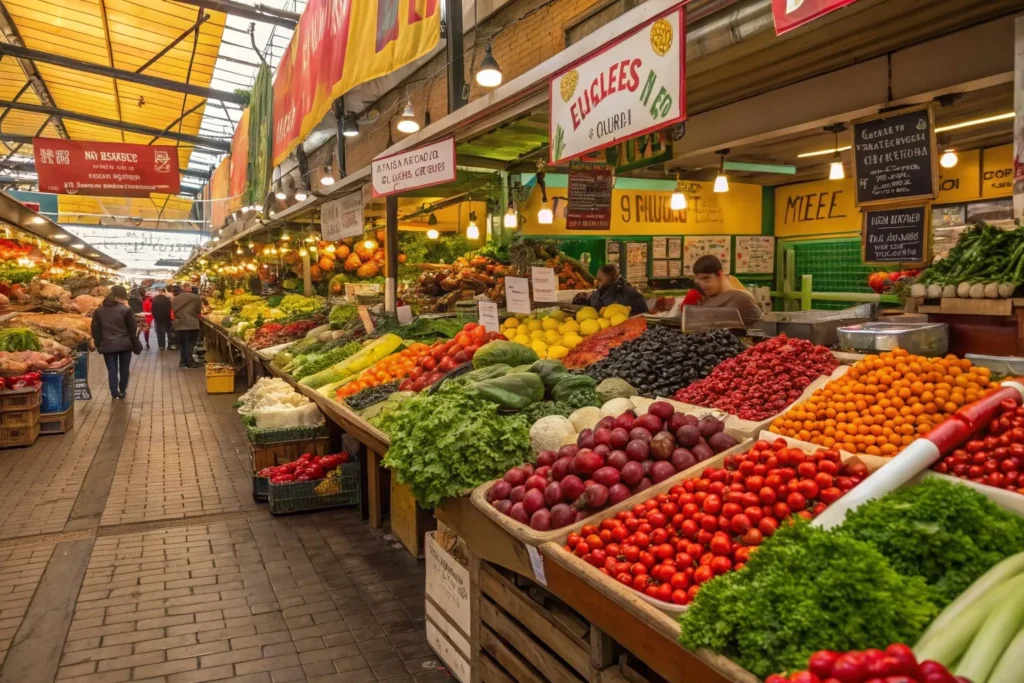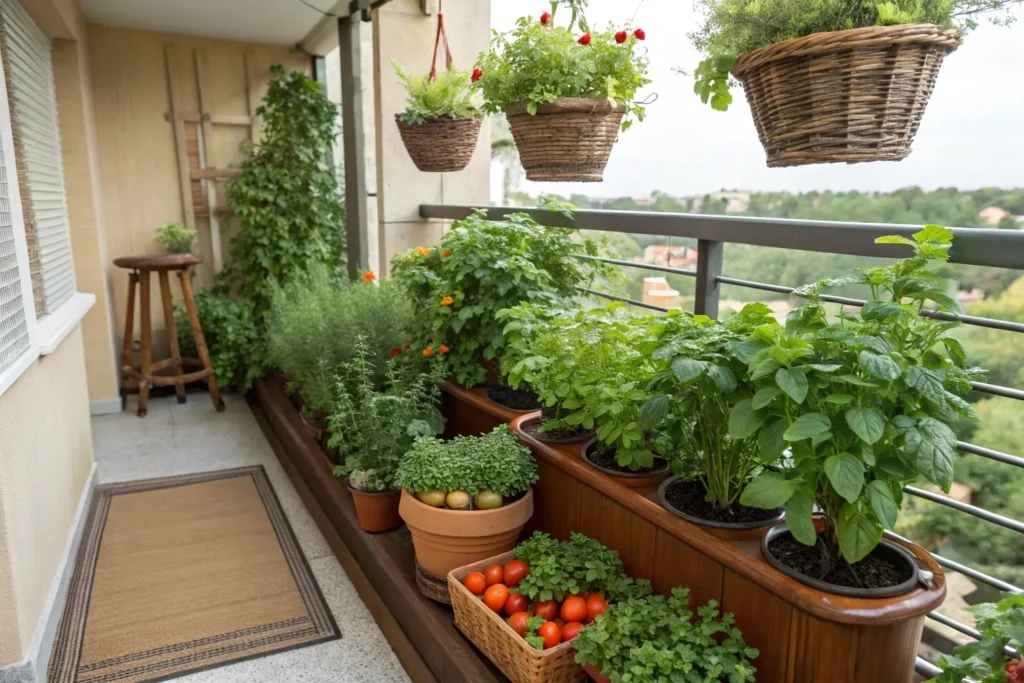15 Ways to Save Money on Groceries Without Sacrificing Quality

Groceries are one of the biggest weekly expenses for most families. No matter where you live, food takes a large part of your budget. Many people try to cut costs but end up overspending because of small mistakes, poor planning, or impulse shopping. The truth is, you can save money on groceries without giving up taste, nutrition, or quality.
With the right strategies, you can lower your bills, reduce food waste, and enjoy healthier meals. These money saving habits may take a little practice, but once you start, they become second nature.
These tips are simple, realistic, and effective. By following them, you will not only spend less but also shop with confidence and peace of mind.
Plan meals before shopping
Planning meals is the first and most important step to save money on groceries. When you know exactly what you will cook during the week, you only buy what you need. This prevents random purchases that often end up wasted.
Meal planning also helps you make use of what you already have. For example, if you have leftover rice at home, you can plan a fried rice dinner instead of buying new ingredients.

It reduces stress as well. Instead of wondering what to cook every evening, you follow your meal plan and save time.
You can start small by planning three to four dinners for the week. As you get comfortable, extend it to the full week.
With consistent meal planning, you will notice how your grocery spending becomes more controlled and predictable.
Make a grocery list and stick to it
A grocery list is your secret weapon against overspending. Without a list, it is very easy to get distracted by sales signs, fancy packaging, or cravings.
Start your list by checking your fridge and pantry. This prevents you from buying duplicates. Then write down only the items you need for your meal plan.
Organize your list by sections such as produce, dairy, grains, and frozen foods. This makes shopping faster and ensures you don’t forget anything.
The most important part is sticking to your list. If you add random items while shopping, your bill will quickly rise.
A simple list may look like a small thing, but it is one of the most effective ways to save money on groceries every single week.
Buy in bulk wisely
Buying in bulk can be a great way to cut costs, especially for items that do not expire quickly. Products like rice, pasta, flour, beans, and canned goods are cheaper when bought in larger packs.
However, bulk buying only works if you use the items. Buying too much fresh produce may lead to waste if you cannot eat it before it spoils.
If you have a small family or limited storage, consider sharing bulk purchases with friends or relatives. This way, you both save money and avoid waste.
You can also freeze bulk meats and vegetables in small portions to make them last longer.
When used correctly, bulk buying is a long-term money saver and helps you cut down on frequent store trips.
Choose store brands over name brands
Many people believe name brands are better, but in reality, store brands are often just as good. Items like sugar, milk, flour, canned vegetables, and cleaning products usually taste or work the same, but cost less.
Most supermarkets invest in their own brand products to keep customers happy, so the quality is usually high. Sometimes they are even made in the same factories as the expensive brands.
Try switching one or two items to store brands. If you like the quality, switch more.
Over time, this simple change can save you hundreds of dollars every year without affecting your lifestyle.
Use coupons and cashback apps
Coupons and cashback apps are excellent tools for lowering grocery bills. Many stores now offer digital coupons that you can apply directly at checkout.
Cashback apps give you money back when you upload your receipts. While the savings may look small, they add up over weeks and months.
For maximum savings, combine coupons with items already on sale. This way, you double your discount.
Just remember: only use coupons for things you actually need. Otherwise, you end up spending more.
With a little effort, coupons and cashback can make a big difference in your monthly grocery budget.
Shop seasonal produce
Fruits and vegetables cost less when they are in season. For example, strawberries are cheaper in summer and pumpkins are cheaper in fall.
Seasonal produce not only saves money but also tastes fresher and better. Off-season produce often travels long distances, which increases its price.
You can learn about seasonal foods in your region and plan meals around them. This keeps your diet varied and affordable.

If possible, buy extra seasonal produce and freeze it for later. This allows you to enjoy out-of-season fruits at lower costs.
Seasonal shopping is one of the healthiest and most budget-friendly grocery habits.
Compare prices and use unit pricing
Not all deals are what they seem. A larger package may look cheaper, but sometimes smaller packs have better value.
Always check the unit price (price per ounce, pound, or liter). This shows the true cost of the product.
You can also compare prices between different stores. Some items may be much cheaper at one store than another.
If you don’t want to visit multiple stores, check if your local store price matches competitors. Many supermarkets do this if you show proof.
By comparing prices and focusing on unit pricing, you avoid marketing tricks and save real money.
Shop with cash or set a budget
When you shop with a card, it is easy to overspend. Using cash forces you to stay within a limit.
Before you shop, set a budget for how much you will spend. Take only that amount in cash.
If you prefer digital payments, use a separate grocery budget in your banking app. Track your spending carefully.
This method makes you more aware of your purchases and helps you avoid unnecessary items.
Over time, shopping with a strict budget will keep your grocery bills under control.
Avoid shopping when hungry
Shopping on an empty stomach is a common mistake. When you are hungry, everything looks delicious, and you end up buying more snacks or ready-to-eat foods.
These impulse buys increase your grocery bill and are often less healthy.
Eat a small snack before heading to the store. You will make more rational choices and stick to your list.
It is a simple tip, but it can save you a surprising amount of money.
Buy frozen and canned foods
Fresh produce is great, but frozen and canned foods are often cheaper and last longer.
Frozen vegetables, for example, are picked at peak freshness and quickly frozen, so they keep their nutrients. They are also convenient for quick meals.
Canned beans, tomatoes, and fruits are budget-friendly staples that save time in cooking.
Having frozen and canned foods at home reduces last-minute store trips, which often lead to overspending.
Mixing fresh, frozen, and canned items is a smart way to balance cost and nutrition.
Reduce meat consumption
Meat is one of the most expensive items on grocery bills. Reducing meat consumption a few days a week can save a lot of money.
Try including vegetarian meals such as lentils, beans, or vegetable stir-fries. These meals are healthy, filling, and cheaper.
Even replacing meat with eggs, tofu, or chickpeas can reduce costs while keeping meals delicious.
If your family enjoys meat, buy it in bulk and freeze portions for later.
Eating less meat is not only good for your wallet but also better for your health.
Cook at home more often
Eating out or ordering food may seem convenient, but it is far more expensive than home cooking.
Cooking at home allows you to control ingredients, portion sizes, and costs. Even simple meals like pasta or stir-fried vegetables are much cheaper than restaurant meals.

Batch cooking is another smart habit. Prepare larger portions and store leftovers for the next day. This saves both time and money.
Cooking at home can also be fun if you try new recipes with your family.
In the long run, home cooking is one of the strongest ways to save money on groceries.
Image Prompt: A cozy kitchen scene with a family cooking together.
Store food properly to avoid waste
Food waste is like throwing money in the trash. Learning how to store food properly keeps it fresh for longer.
For example, keep onions and potatoes in a cool, dark place but away from each other. Wrap herbs in damp paper towels and refrigerate. Freeze bread if you cannot finish it quickly.
Use airtight containers to keep snacks, grains, and cereals fresh.
By reducing food waste, you get the full value from your groceries and spend less over time.
Take advantage of loyalty programs
Many grocery stores offer loyalty cards or apps that give discounts, points, or cashback.
Sign up for these programs and use them every time you shop. Points can often be redeemed for free groceries or fuel discounts.
Some stores send special coupons to loyalty members, giving you extra savings.
If you shop regularly at one store, loyalty programs are a must for saving money.
Grow your own herbs and vegetables
Even if you don’t have a big garden, you can grow herbs and small vegetables in pots. Basil, mint, parsley, and green onions grow easily indoors or on balconies.
Growing your own food reduces your need to buy these items at the store. Freshly picked herbs also taste better.

If you have outdoor space, try tomatoes, lettuce, or peppers. These are beginner-friendly and can save you money over time.
Gardening also brings joy and makes you more connected to your food.
Conclusion
Saving money on groceries does not mean sacrificing quality or taste. With smart habits like meal planning, making lists, shopping in season, and using store brands, you can enjoy delicious meals at a lower cost.
The key is consistency. Each small habit may not feel like much at first, but together they make a big difference in your monthly budget.
You will not only reduce your bills but also create a healthier, more organized lifestyle.
FAQs
1. What is the easiest way to save money on groceries?
Meal planning and sticking to a grocery list are the simplest and most effective methods.
2. Is it cheaper to buy frozen vegetables instead of fresh?
Yes, frozen vegetables are often cheaper, last longer, and still keep their nutrients.
3. How do I stop overspending on snacks?
Avoid shopping when hungry, and limit snack buying to what is on your list.
4. Are store brands as good as name brands?
In most cases, yes. Store brands are usually just as good but cost much less.
5. Can growing my own food really save money?
Yes, even growing small herbs at home can cut costs and provide fresh flavor for meals.






